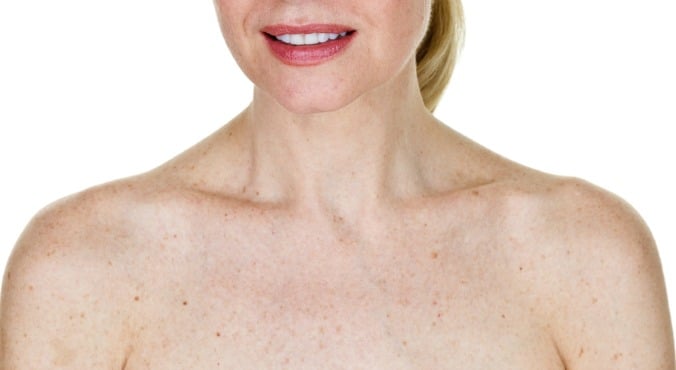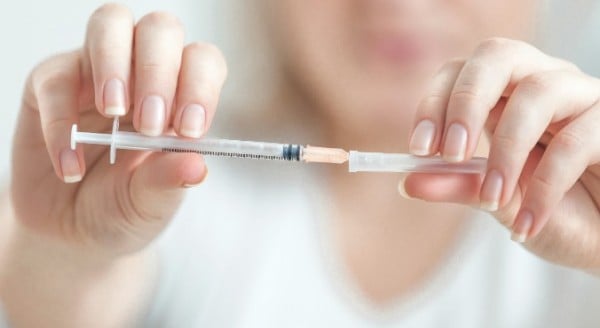
Image: iStock.
There’s a chance you’ve heard a bit of buzz about hormones and anti-ageing over the past few years.
To be more specific, the use of hormone supplementation and treatments to combat the physical side-effects of getting older, particularly the appearance of skin.
According to UK newspaper The Telegraph, some private doctors are giving women prescriptions for bioidentical hormone replacement therapy (BHRT) — containing hormones like testosterone and progesterone in ‘bioidentical’ form — as an anti-ageing therapy. Apparently, some view testosterone as “the new Botox, but better.”
“Medics now believe it can lead not just to younger-looking skin, but also to increased energy and sex drive; a triple whammy of holy-grail benefits for the middle-aged woman,” the newspaper reported last year.
With a spiel like that, you can see why people might be taking an interest in this topic.
There have also been reports of human growth hormone (HGH or GH) being used to replenish hormone levels that have dropped through ageing, in order to restore them to a more ‘youthful’ state of health (and beauty). In a 2012 article exploring the popularity of HGH in Hollywood, Vanity Fair described GH as “the love child of Viagra and Botox.”
Watch: Meghan Ramsay discusses the side-effects of low self esteem. (Post continues after video.)

